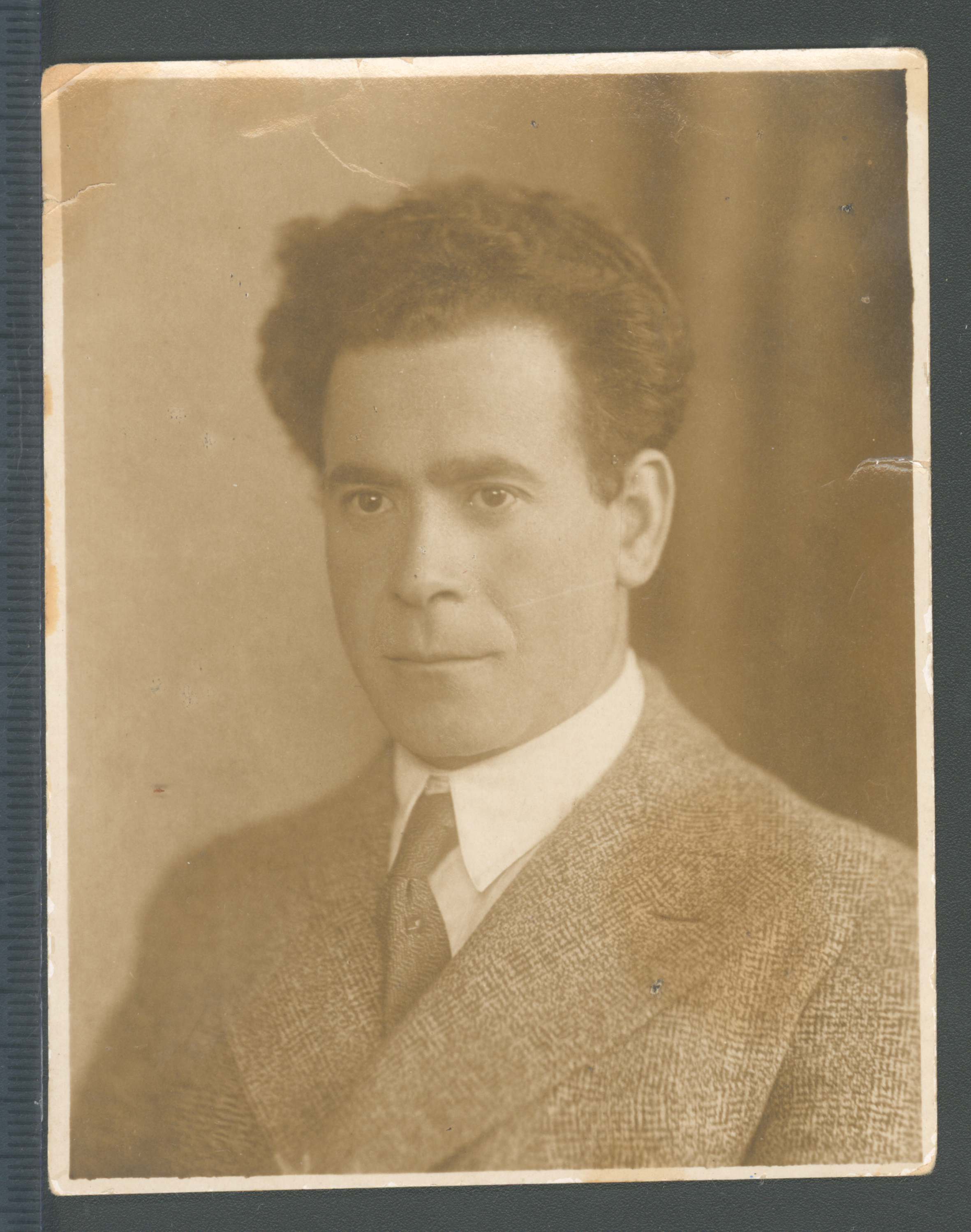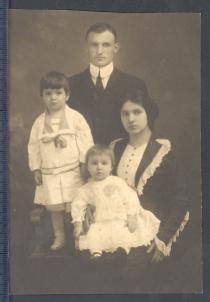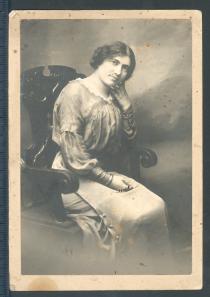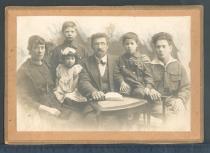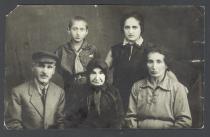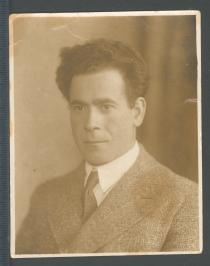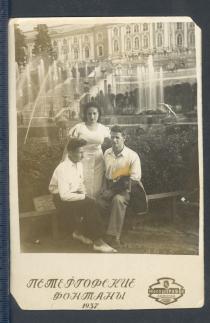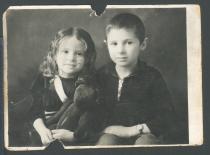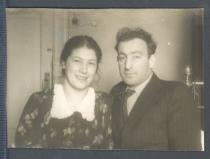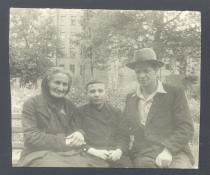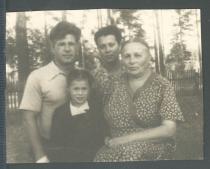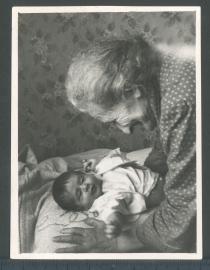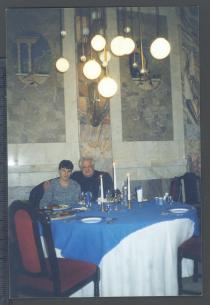Khenik Skurnik, brother of my grandmother on father's side. The snapshot was made in the beginning of 1937, before he was subjected to repressions; he worked as a people's judge then.
Khenik was born in Poland, in 1901, went to serve in the voluntary Polish army, participated in the revolutionary movement, was an active member of the Communist party of Poland from 1919 to 1923, carried out revolutionary work among poor and landless peasants of Rodzynya, Narchev, Lukov.
He was repeatedly arrested, was many times behind bars, persecuted by the police and was compelled to move to Warsaw in 1921, where he became a member of the Communist organization of dressmakers' trade union until 1923. In 1923, due to the risk of another arrest, he was sanctioned by the Central Committee of the Communist party of Poland to escape to the USSR.
There he wanted to serve in the Red Army, but they did not allow him, as he was not a USSR citizen. He became a citizen and consequently a soldier of the Red Army.
By the end of the Civil War he found himself somewhere in Turkestan. Once they received an order to send one of the soldiers - a party member - to Leningrad, to get a legal education. It was necessary to train judges for the Soviet Republic. Khenik, as I was told, asked the commander of the battalion: "Why me, of all the guys?" And the commander answered:
"You are the only one in the entire battalion, who did not ask to write addresses at your letters, you did it yourself, which means you're literate, therefore you are going to go and study". He was admitted a student of the Leningrad university, as a military man directed by the Communist party.
He lived in a hostel, and by the moment of his graduation his nephew came to join him - my father. Other relatives followed his example very soon.
After obtaining legal education, Khenik served as people's judge in 1935-1937. He frequently acted as judge in court cases of Poles and Jews, thanks to his good command of both Polish and Yiddish.
In the end of 1937 he was subjected to repressions, announced "the enemy of the people" and put to jail for 10 years. His wife, having learnt about it, hung herself. Grandmother Eugenia Lvovna first took care of their small son, born in 1936.
Later she sent the boy to an orphanage in the town of Pushkin in Leningrad region, because she was afraid that the boy will be taken away as "the son of the enemy of the people". In 1941 the child was evacuated with the orphanage to the Urals. Khenik served his term in prisoners' camps, survived, and was released in 1947 without the right of residing in Moscow and Leningrad.
He took his son and went to the Western Ukraine, to live closer to his native land. However, in 1956 he was rehabilitated and restored in the Communist party. By then he already was the veteran of the Communist party with huge experience, but he flatly refused to work as a people's judge any more.
His son first studied in a military school in Kiev, then in Odessa, and finished his service in Minsk in the rank of lieutenant colonel. Khenik died in 1990 in the family of his son in Minsk. The majority of truthful family stories were recounted to me by him.
According to my Uncle Khenrik Skurnik, there were both poor Jews, and rich Jews in the small Jewish town of Vogyn in Poland, where all my ancestors on father's line lived.
There were handicraftsmen, military officers, dealers, and, of course, everybody lived very different lives. By the way, the surname Len originates from a nickname, because the square of land in Western Europe was measured in lens.
One len was not less than half a hectare, it was not the 0.06 of a hectare that is usually owned by kitchen gardeners in today's Russia. Some people had up to 100 lens. But even a man, who possessed one Len, for which my ancestors received their surname, was already considered a land owner, and had the right to shout at meetings: "Off with the king!". These small landowners were authorized to serve in the Polish army, if they wished, and could pursue a military career.
It is known that my distant relatives served as high rank military officers in the 1800s, and this military inclination periodically manifests itself in our kin. The Lens belonged to merchants of not less then the second guild and were rich enough and quite independent in that small town.
The Skurniks were by origin more noble, but impoverished. Therefore the Skurniks took to revolutionary activity, and the Lens stayed in trade.
